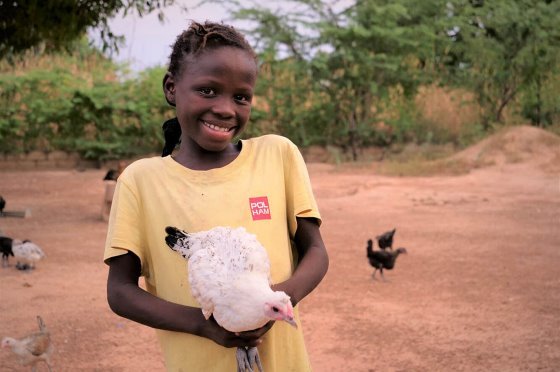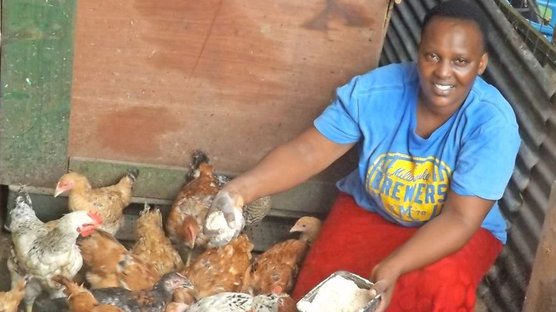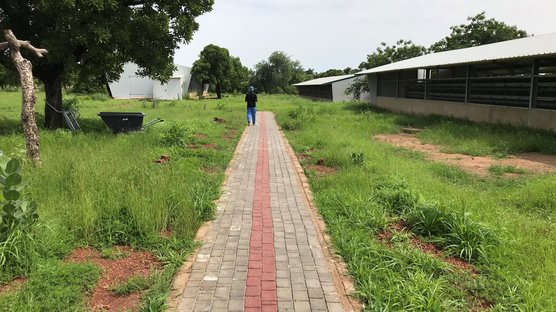
Published on Nov. 13, 2020
African Poulet du Faso improves chicken performance
The African poultry situation continues to evolve despite the difficult conditions that chickens can encounter in this region. The ‘Poulet du Faso’ project has been set up to support local farmers with performant and disease resistant chickens. Five years later, the project has taken major steps in providing genetically improved chickens to Sub-Saharan Africa.
Chickens raised in Africa have to face challenging conditions with a hot climate and a poor sanitary environment, with the predominance of Newcastle Disease. As a result, chickensare experiencing performance problems, leading to high mortality rates. To be part of the solution, Ceva partnered with SASSO to establish the first avian selection center in Burkina Faso, initiating the ‘Poulet du Faso’ project five years ago. The objective is to produce a crossbreed of local chickens and SASSO’s hens. Indeed, SASSO’s slow-growth colored chickens seemed to be the ideal solution for African farmers who need an inexpensive, more disease-resistant chicken that is highly efficient and able to provide nutritious protein.
Poulet du Faso: a project to improve local African breeds
Also named ‘the Chicken of Faso’ this initiative is funded by the Bill & Melinda Gates Foundation, and aims to provide high-quality animal genetics, and thus develop the African chicken breeding. Recurrent tests are carried out to study field performance and obtain the right combination between local breeds and improved breeds. By ensuring that the bird is adapted to local needs and environmental pressures, its chances of survival increase. But what is also important is to preserve the characteristics of the local ‘Poulet Bicyclette’, especially its phenotype (the way the chickens look), as the Burkinabé are very attached to it, as well as its unique taste and rusticity. So, in the program, this local male line is crossed with a SASSO female in order to strengthen the resistance of the chickens to the African conditions. The healthier and more numerous chicks are vaccinated in the hatchery using Ceva's vectorized vaccines, a protection against NewCastle, a highly developed disease in Africa. They are better prepared for the African climate and will produce more eggs. This also increases their survival rate.
5 years later: an enormous increase in productivity
During the last five years, the project has been started and has rapidly escalated to reach great results. As a consequence of the program, the Faso chickens mortality rate is now only 5%, against 50% for traditional breeds. We also observe a huge improvement in the productivity of those chickens. About 1,000 chicken smallholder farmers have increased their productivity by 100 times in Burkina Faso. It is also noticeable that the 5th generation pedigree now has a laying capacity twice as high as that of its predecessors while preserving its delicious taste.
Since the start of production about 2 years ago, the project has generated about US$3 million in income, 70% of which has directly benefited small-scale farmers in this region.
SASSO and Hendrix Genetics are proud to work with local and international partners to help the farmers’ living conditions in Africa by genetically improving their local chickens. For example, we are also enhancing the access to better chicken genetics in Africa thanks to the Sustainable Access to Poultry Parental Stock to Africa project (SAPPSA), financed by the Bill & Melinda Gates Foundation.
Photo: Ceva



